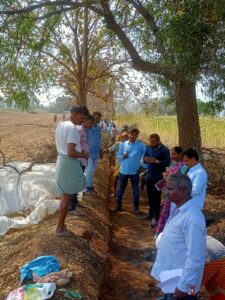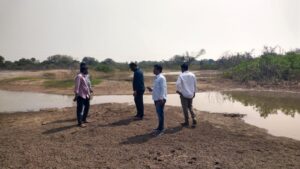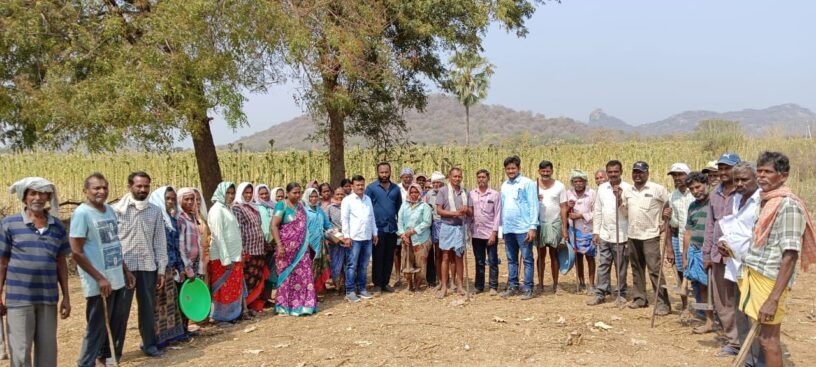
KARIMNAGAR, MARCH 08, 2024: In an exemplary interdisciplinary collaboration aimed at comprehending the socio-economic impact of governmental initiatives, a team of Scientists from the Rural Development and Watershed Monitoring Division of National Remote Sensing Center (NRSC/ISRO)- Hyderabad, accompanied by State CRD GIS expert Abey Kimar undertook a field visit to study the effects of the Mahatma Gandhi National Rural Employment Guarantee Act (MGNREGA) in Godishala village of V Saidapur mandal in Karimnagar District of Telangana.
Led by NRSC Scientists Mr Boorla Anil Kumar and Mr Joshi Chowdary, the team ventured into rural heartlands to analyze the tangible changes and evaluate the program’s influence on local communities. MGNREGA, a pivotal scheme introduced by the Government of India, guarantees a hundred days of wage employment in a financial year to rural households. Its objective is to enhance livelihood security and promote sustainable development in rural areas. The initiative has been instrumental in creating employment opportunities and boosting rural economies across the country.


Accompanied by local officials and experts, the ISRO team meticulously examined the impact of MGNREGA by employing innovative technological tools and satellite data analysis. Mr. Boorla Anil Kumar and Joshi Chowdary renowned for groundbreaking research in remote sensing and geospatial technology, expressed enthusiasm about integrating ISRO’s expertise in this venture.
“We are leveraging satellite imagery and advanced data analytics to comprehensively evaluate the transformation brought about by MGNREGA in these areas,” remarked Boorla Anil Kumar. “This collaboration between ISRO and grassroots initiatives underscores the potential for technology to drive inclusive growth and development.”
During their field visit, the team interacted with villagers, officials, and beneficiaries of the MGNREGA program, gaining valuable insights into its multifaceted impact. They assessed the creation of Natural Resource Management (NRM) activities like Drought Proofing, Farm Ponds, Horticulture, land productivity, ecological changes, and the overall socio-economic upliftment facilitated by the scheme.
“The field visit was an eye-opener, revealing the tangible improvements and challenges faced by communities benefiting from MGNREGA,” shared one of the team members. “Understanding these dynamics aids in refining policies and optimizing the program’s effectiveness”, they stated.















